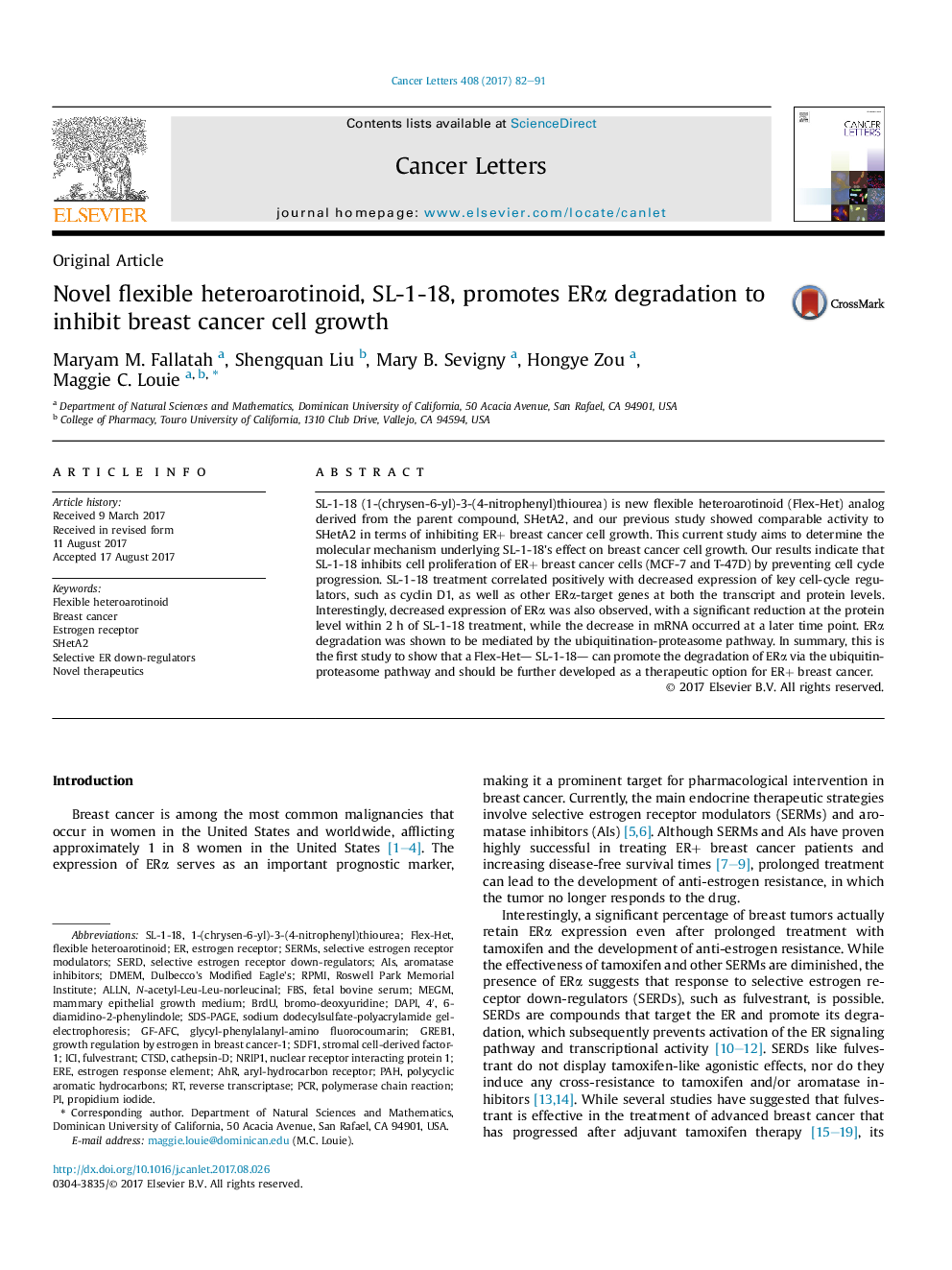| Article ID | Journal | Published Year | Pages | File Type |
|---|---|---|---|---|
| 5525305 | Cancer Letters | 2017 | 10 Pages |
â¢A novel Flex-Het, SL-1-18 inhibits ER + breast cancer cell proliferation.â¢SL-1-18 lowers the levels of cell cycle regulators and blocks cell cycle progression.â¢SL-1-18 promotes the degradation of ERα via the ubiquitin-proteasome pathway.
SL-1-18 (1-(chrysen-6-yl)-3-(4-nitrophenyl)thiourea) is new flexible heteroarotinoid (Flex-Het) analog derived from the parent compound, SHetA2, and our previous study showed comparable activity to SHetA2 in terms of inhibiting ER+ breast cancer cell growth. This current study aims to determine the molecular mechanism underlying SL-1-18's effect on breast cancer cell growth. Our results indicate that SL-1-18 inhibits cell proliferation of ER+ breast cancer cells (MCF-7 and T-47D) by preventing cell cycle progression. SL-1-18 treatment correlated positively with decreased expression of key cell-cycle regulators, such as cyclin D1, as well as other ERα-target genes at both the transcript and protein levels. Interestingly, decreased expression of ERα was also observed, with a significant reduction at the protein level within 2 h of SL-1-18 treatment, while the decrease in mRNA occurred at a later time point. ERα degradation was shown to be mediated by the ubiquitination-proteasome pathway. In summary, this is the first study to show that a Flex-Het- SL-1-18- can promote the degradation of ERα via the ubiquitin-proteasome pathway and should be further developed as a therapeutic option for ER+ breast cancer.
